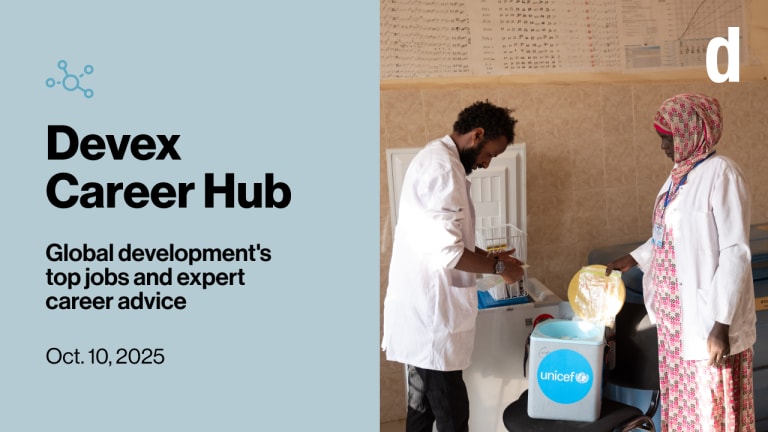
NAIROBI — The statistics on rape and domestic violence in Nigeria are collected from security agencies, like the police, as well as from the National Population Commission, which conducts a survey on demographics and health every five years.
But over the past year, Oloyede Oluyemi, the assistant director in charge of gender statistics at the country’s National Bureau of Statistics, realized that this was not good enough. These figures are biased, as many women do not report their abuse to police, and they are not updated frequently enough.
Instead, the country should carry out stand-alone surveys on these issues, she said, with data collectors going from door to door to ask women questions including “Has your husband beaten you today?” and “Why did he beat you?” These surveys would be held privately with women and ideally with a woman as the interviewer.
It was through attending workshops with the Africa Gender Data Network that Oluyemi realized the importance of these stand-alone surveys, and she is now advocating that the Nigerian government consider conducting them.
The network, funded by Data2X and launched last year, unites statisticians from across the African continent who are the focal points for gender data in their national statistical offices. The initiative is intended to provide a space for these statisticians to share best practices on what has worked — or what has failed — in their countries, as well as to learn the latest methodologies in gender data gathering.
“It’s about connecting people and getting people to share knowledge with each other,” said Shaida Badiee, managing director at Open Data Watch, which provides capacity-building support to the initiative.
The network
One of the initial intentions of the network, which is coordinated by the African Centre for Statistics at the United Nations Economic Commission for Africa, was to support participants from across the continent to attend in-person conferences focused on improving gender data collection practices.
The first meeting was held in November in Accra, Ghana. But as the COVID-19 pandemic complicated travel, the network has instead hosted webinars, and members will virtually attend the UN World Data Forum in October.
Meriem Ait Ouyahia, the coordinator of the network who also works with UNECA, collects and shares resources with participants. She does this through a regional information-sharing platform called the African Statistical Knowledge Network, which was developed by UNECA.
There is a subsection of this platform specifically for the Africa Gender Data Network, which is updated with new publications, online courses, and events. There is also a forum for members to discuss challenges they are facing.
There are currently 15 members of the network, representing 15 African nations: Botswana, Côte d’Ivoire, Ethiopia, Ghana, Kenya, Lesotho, Malawi, Nigeria, Rwanda, Senegal, South Africa, Tanzania, Uganda, Zambia, and Zimbabwe.
The 15 countries were analyzed in a study by Open Data Watch, which found that 48% of gender-relevant indicators were missing in the data collected for these countries. Kenya and Lesotho produced the fewest gender indicators in national databases, and Ghana the most.
“Gender-sensitive surveys that look at domestic violence — you don't get money for those.”
— Babalwa Nyangintsimbi, statistician, Statistics South AfricaAt their individual national statistics offices, the statisticians collect information such as the number of girls enrolled in school, the number of women involved in politics and serving as judges, and the number of women receiving treatment for HIV, among other data points. This information is intended to guide policymakers, statisticians told Devex.
One of the network’s intentions is to share experiences between countries. Ghana, for example, is planning to roll out a pilot program to collect citizen-generated data on violence against women. Gloria Akoto-Bamfo, principal statistician at the country’s statistical service, shared information on this pilot program with the other participants in the network during a workshop.
“Some of the network participants were interested and are just waiting to see the outcome to decide if they can do the same,” Akoto-Bamfo told Devex.
A common misconception is that applying a gender lens is simply about collecting sex-disaggregated data, but it goes beyond that, UNECA’s Ouyahia said. The network is helping participants dig into this.
The way that data is collected may be biased if those who are collecting it are not asking the right questions or not taking into consideration social and cultural issues that influence women’s lives, as well as the diversity that exists among women, said Babalwa Nyangintsimbi, a statistician at Statistics South Africa.
Another focus is on making data more available, Open Data Watch’s Badiee said. In some countries, data might exist, but it sits in an Excel file on a government office computer. People within this network can help analyze this data and make it publicly available in their countries.
Barriers to implementation
One of the aims of the network is to shorten the lag time between methodological advancements and their implementation on the ground.
But that is difficult when finances are not available, participants told Devex. A statistician might know all of the right practices, but without funding, putting these techniques into practice is challenging.
“Gender is not taken seriously. It’s just a compliance issue. We don’t want to just comply; we want to make a difference.”
— Babalwa Nyangintsimbi, statistician, Statistics South Africa“The bottom line is finance. If you learn and there is no finance to do the work, there is nothing you can do,” Oluyemi said.
In particular, funding is not prioritized for data on women and girls, Nyangintsimbi said.
“Gender-sensitive surveys that look at domestic violence — you don't get money for those,” she said.
Another challenge is that these offices do not always receive the data they need from other parts of the government. Nigeria’s National Bureau of Statistics, for example, sends out templates for the data it needs, but other ministries, departments, and agencies do not always fill out these templates properly, Oluyemi said. This could be because some offices do not have approval to release the data, they have it in a different format than what is requested, or they do not have the data.
Also, some agencies do not prioritize data gathering, Nyangintsimbi said. They might see the inclusion of gender data in a survey as only a way to tick off a compliance requirement.
“Gender is not taken seriously. It’s just a compliance issue. We don’t want to just comply; we want to make a difference,” Nyangintsimbi said.
But sending staff members from national statistics offices out into the field to help them learn how to collect this information better is costly, statisticians told Devex.
Ultimately, there is hope that the network’s members can elevate the importance of gender data across the national political systems in the countries where they work, Ouyahia said.
The network’s funding ends in February, but those running it are hopeful that funding will be renewed, as networks like these take time to build.
“This is like planting the seeds. These kinds of projects take time to really take off,” Ouyahia said.
Devex, with support from our partner UN Women, is exploring how data is being used to inform policy and advocacy to advance gender equality. Gender data is crucial to make every woman and girl count. Visit the Focus on: Gender Data page for more. Disclaimer: The views in this article do not necessarily represent the views of UN Women.









